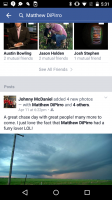Dan Robinson
EF5
Here is the Facebook page of the Wichita County ARES, the organization quoted in the article and at the center of the incident. I'm not on Facebook, so if someone could let them know to contact me, I would like to have a discussion with them.
https://www.facebook.com/WichitaCountyAresSkywarn
https://www.facebook.com/WichitaCountyAresSkywarn


